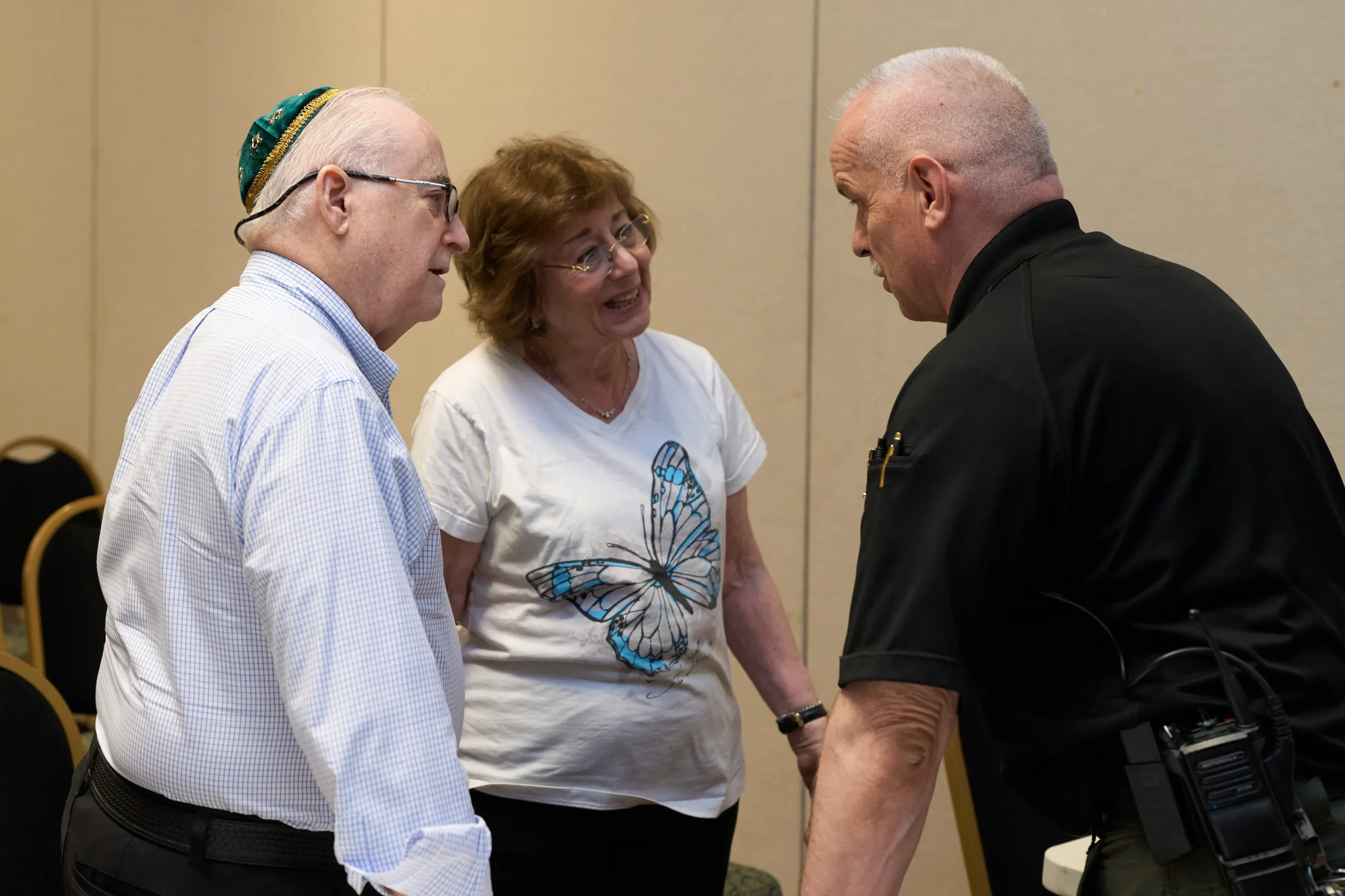Building Confidence Through Security Readiness

As the High Holy Days approach, Jewish Atlanta is preparing not only spiritually, but also with vigilance and resolve. On August 24, the Jewish Federation of Greater Atlanta and the Secure Community Network (SCN) hosted a community-wide security training at Congregation Ariel in Dunwoody, which brought together community members, synagogue leaders, volunteers, and law enforcement for a vital reminder: protecting Jewish life is a shared responsibility, and it requires preparation.
This work is not seasonal—it is constant. Federation and SCN are working year-round, often behind the scenes, to protect our Jewish community, combat antisemitism, and advocate for members of our community when they face it. Even when we don’t see it, SCN’s work is active, tracking threats, building relationships with law enforcement, and ensuring synagogues, schools, and institutions are prepared every day.
The urgency of this work was underscored recently in Atlanta, when a man began visiting multiple Jewish institutions while exhibiting troubling behavior. Thanks to SCN’s vigilant monitoring of his online activity and quick coordination with law enforcement, he was taken into custody before he could escalate further.
For Mile Brosas, Deputy Director of Community Security, this incident exemplifies the unseen, year-round work of SCN and Federation. “Law enforcement takes threats to the Jewish community very seriously, but they can’t be everywhere at once,” Brosas explained. “That’s why our partnership, and the vigilance of community members, is so critical.”
The August 24 training equipped participants with practical tools for awareness and response. Federation’s Rich Walter opened with an overview of our community-wide security program, emphasizing that the investments donors make are what make this security work possible. Deputy Chief Oliver Fladrich of the Dunwoody Police Department shared best practices for situational awareness and active threat response, highlighting the “avoid, deny, defend” model. Community Security Service (CSS) conducted a powerful exercise with audience volunteers, showing how something as simple as a warm greeting at the door can act as a first line of defense. Finally, DeKalb EMS closed with emergency medical training, ensuring participants left with skills that could make the difference in a crisis.
“It was a great meeting, well attended, and very relevant,” Brosas reflected. “We don’t want people to live in fear, but to live with self-assuredness and confidence. Preparation gives people that confidence.”
That sense of confidence is exactly what these trainings aim to instill. While no one wants to imagine a crisis unfolding in a synagogue, school, or community center, practicing difficult scenarios ensures people are prepared if the unthinkable happens. Brosas put it plainly: “The difference between surviving and not surviving is often preparation and action.” And this preparation isn’t limited to security staff or police officers—it belongs to everyone. Parents, greeters, teachers, and congregants all have the ability to be assets in keeping Jewish life safe.
More importantly, security is what allows Jewish life to flourish. “Security isn’t just about whether a building is safe,” Brosas said. “It’s also about how people feel. When they feel safe—mentally and emotionally—they can participate in Jewish life joyfully and fully.”
This year, as the community gathers for the High Holy Days, SCN is working hand-in-hand with synagogues across Atlanta to review plans, train staff and volunteers, and strengthen coordination with law enforcement. National SCN webinars on de-escalation (The Power of Hello), situational awareness (Be Aware), and active threat response (Countering Active Threats) are also available to anyone in the community.
And the work does not stop when the holidays end. Federation and SCN continue this vital work all year long—offering quarterly trainings, advocating on behalf of the Jewish community in the face of antisemitism, and quietly preventing threats before they become realities.
As Brosas emphasized: “We want people to live their lives with joy and confidence. When we invest in security, we make sure that Jewish life not only endures, but thrives.”